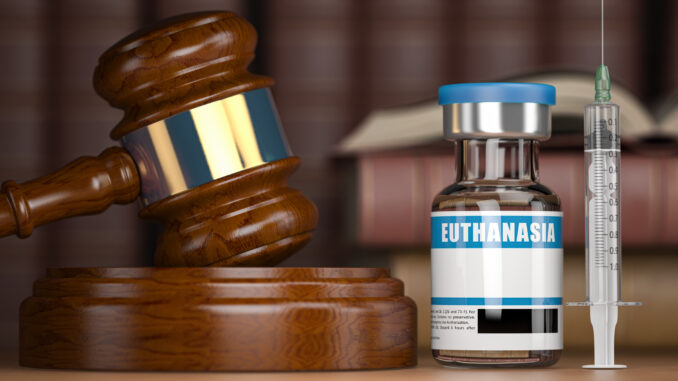
By Hank Russell
A Long Island state legislator ripped his fellow colleagues in the chamber for passing a piece of legislation that would afford terminally ill patients access to medications to end their lives. He said the bill is “potentially dangerous” and contains “too many what-ifs and unknowns.”
The state Assembly recently passed the Medical Aid in Dying Act by a vote of 81-67. The Act would allow those who may be suffering from pain caused by an irreversible medical condition to request and use medications and medical devices to hasten the patient’s death.
“Thank you to the speaker [Carl Heastie (D-Bronx)], who not only when I asked gave me a path to put this before us today but who guaranteed that path and worked with me to create a path,” Assemblywoman Amy Paulin (D-Scarsdale) — who introduced the Act —- was quoted as saying by The Post-Journal (Jamestown, New York), before this week’s vote. “I am so indebted and appreciative.”
The Post-Journal also reported that Paulin introduced the bill during each legislative session for the past 10 years.
There is also a Senate version of the bill that was introduced by Brad Hoylman-Sigal (D-Lower Manhattan), but that has since been referred to the Health Committee.
“I believe this proposal is not in New Yorkers’ best interest as it currently does not address significant risk factors associated with its passage that could carry unintended and potentially dangerous consequences,” said Assemblyman Keith Brown (R,C-Northport).
According to Brown, the Medical Aid in Dying Act stipulates two things:
- A mentally competent, terminally ill adult with a prognosis of six months or less to live may request life-ending medication from their treating physician they can self-administer to cause their death.
- Certain protections and immunities are provided to health care providers and other persons, including a physician who prescribes medication to the terminally ill patient to be self-administered in compliance with the provisions of the proposal.
While he believes that some on the right-to-die movement may have a point, Brown said he agrees with Floor Leader Mary Beth Walsh (R-Ballston Spa) in that, with the suicide rate in New York State on the rise, “it is clearly a terrible time to pass this bill.”
In addition, legalizing this form of dying would “open up too many opportunities for coercion, abuse or even accidental death,” Brown said.
“Patients could be pressured by family members into choosing this medication over palliative care due to financial challenges, societal expectations or other factors,” Brown said. “Elderly or disabled patients who cannot defend themselves could be pressured or even forced into taking this medication by abusive family members, caregivers or others who wish them harm. And while this medication is only available to adults, how can we ensure it never falls into innocent young hands?”
Long Island Life & Politics recently posted a poll asking if assisted suicide should be legal in New York State. Of those who responded, as of press time, 61.11% said it should be legal, while 38.89% disagreed.
Brown reiterated the harm this legislation would do if it became law.
“Overall, there simply are not enough safeguards in this legislation to protect the public,” he said. “There are too many unknowns and what-ifs associated with this proposal, and when it comes to human life, we cannot leave anything to chance.”

